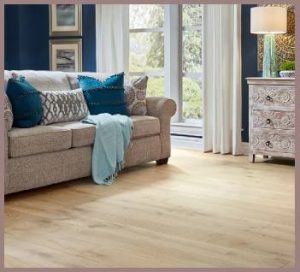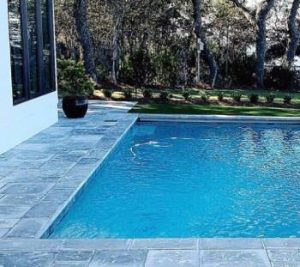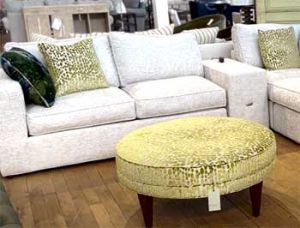When it comes to selecting the ideal flooring for your home or workspace, there are a plethora of options. Hardwood, tile, carpet – each brings a unique feel. Yet, one contender has steadily been gaining traction in the market. Enter Hill Country Vinyl Plank. Many consumers have been attracted by its allure.
This article will provide a comprehensive review of Hill Country Vinyl Plank, focusing on its pros and cons.
The Highs: Pros of Hill Country Vinyl Plank
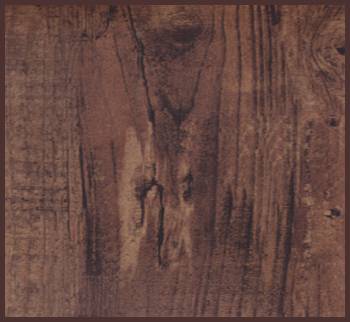
- Aesthetics
Hill Country Vinyl Plank is often praised for its visual appeal. The manufacturers have expertly emulated the texture and finish of natural wood, providing a luxurious, rustic charm. Unlike other vinyl flooring, Hill Country planks offer a broader range of colors and designs. Whether you prefer light oak, rich mahogany, or anything in between, Hill Country has got you covered.
- Durability and Longevity
These vinyl planks are designed to endure. Resistant to stains, scratches, and water, they can hold up in high-traffic areas. Many customers report their Hill Country floors still look great after several years of use. This leads to another advantage – longevity. Properly cared for, these planks can last between 10 and 20 years.
- Easy Installation and Maintenance
Hill Country Vinyl Plank flooring comes with an easy-to-install design. They are click-and-lock, floating floors, which means you can do the installation yourself. In terms of maintenance, the process is equally convenient. Regular sweeping and occasional mopping will keep your floor looking fresh.
Read More: About Naturally Aged Flooring
The Lows: Cons of Hill Country Vinyl Plank
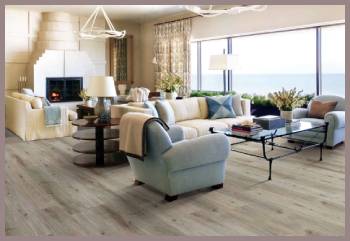
- Sensitivity to Subfloor Conditions
The performance of Hill Country Vinyl Plank largely depends on the condition of your subfloor. Imperfections can telegraph through the material, compromising the appearance and feel of your floor. Subfloors need to be clean, smooth, and level for the best installation results.
- Environmental Considerations
Hill Country Vinyl Plank, like other vinyl products, is made of plastic. As a result, it’s not the most eco-friendly flooring option out there. While some progress has been made in recycling, the majority of used vinyl ends up in landfills.
- Limited Refinishing Options
Unlike hardwood, vinyl plank flooring can’t be refinished. Once it’s worn down, your only option is replacement. This means in the long term, maintenance costs can add up.
Frequently Asked Questions (FAQs)
The main disadvantages of vinyl plank are that it’s sensitive to subfloor conditions, it’s not eco-friendly, and it can’t be refinished.
In addition to the points mentioned above, luxury vinyl plank flooring can also be more expensive than other flooring options. Plus, it might not add as much value to your home as hardwood or tile would.
With proper care and maintenance, quality vinyl plank like Hill Country Vinyl Plank can last between 10 and 20 years.
For many homeowners, the answer is yes. Luxury vinyl plank flooring provides durability, aesthetic appeal, and ease of maintenance, all of which can make the higher price point worth it.
Some people prefer natural materials and are concerned about the environmental impact of vinyl. Others may be put off by the potential for damage from subfloor irregularities or the inability to refinish vinyl flooring.
Generally, vinyl plank is designed to be scratch-resistant. However, like any flooring, it’s not completely immune to damage. Higher quality options like Hill Country Vinyl Plank tend to hold up better against scratches.
Read More: About Cumaru Wood Flooring
How Hill Country Stacks Up Against Competitors
The flooring market is teeming with vinyl plank options. How does Hill Country fare against its competition? Let’s compare it with two close competitors: LifeProof and Shaw Vinyl Plank.
LifeProof Vinyl Plank
LifeProof is another popular choice among consumers. Similar to Hill Country, LifeProof boasts excellent durability, water-resistance, and a wide array of designs. However, customers often note that LifeProof planks feel softer underfoot due to the integrated underlayment, making it comfortable but susceptible to dents from heavy furniture. Hill Country Vinyl Plank, while slightly less soft, is generally more resilient to indentation.
Shaw Vinyl Plank
Shaw is well-known for its premium vinyl plank flooring. Shaw floors have a reputation for their upscale appearance and impressive durability. They also offer an extensive selection of styles. However, Shaw Vinyl Plank often carries a heftier price tag compared to Hill Country. The latter gives you similar quality and aesthetics but at a more budget-friendly price point.
Wrapping It Up
Choosing the right flooring is a significant decision. Hill Country Vinyl Plank, with its mix of aesthetics, durability, and ease of installation, is a compelling option to consider. While it does have some downsides – sensitivity to subfloor conditions, environmental impact, and lack of refinishing options – it fares well against popular competitors like LifeProof and Shaw.
As with any investment, the final choice should consider your specific needs, lifestyle, and budget.

